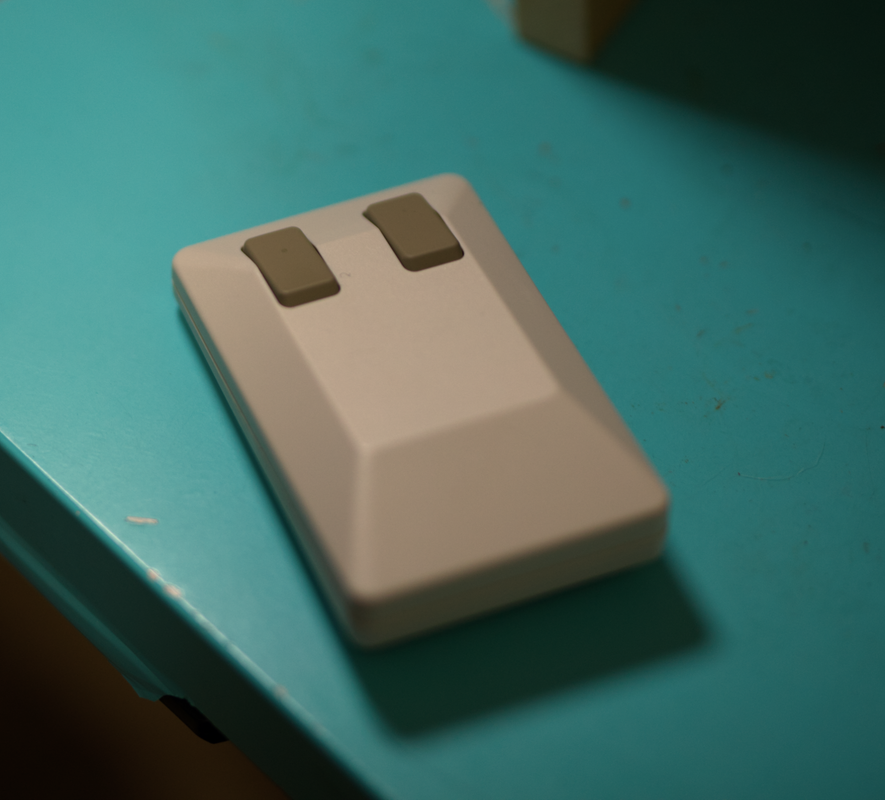TRON: Ares is Officially the Best TRON Movie

TRON: Ares is officially the best TRON film. Period.
I do not say this lightly. I was nine-years-old when the first TRON was released in theaters back in the summer of 1982. The same summer my father brought home an Apple II computer, this film comes out depicting programs as living beings. For me and an entire generation of curious kids, TRON brought the inside of computers to life. I cannot overstate what an impact TRON (along with other 80s films like WarGames and Cloak and Dagger) had on me. By the end of 1982 I owned the entire line of TRON toys (TOMY only released four action figures and two light cycles), which I looked at for inspiration as I poked BASIC programs into that Apple II “in the name of the users.” It wouldn’t be a stretch to say that my lifelong interest in computers and even my career can be traced back to TRON. It changed the trajectory of my life.

None of that changes the fact that 2025’s TRON: Ares is a better movie.
Ask most people what the original TRON was about and they’ll tell you it was about some guy named Tron who gets sucked inside a computer and becomes a real-life character who is forced to play video games for real. They’ll probably remember the light cycles and the digital tanks and guys throwing glowing Frisbees at each other. Actually, the main character most people misremember as being “Tron” is actually Kevin Flynn, played by Jeff Bridges. Tron is the computer program written by Alan Bradley (Bruce Boxleitner). Almost no one remembers that the plot of TRON involved Flynn hacking into ENCOM’s computer system in search of evidence needed to prove he was the original author of the arcade game Space Paranoids. Most of the parts people remember — all the CGI footage of light cycles and tanks and so on — only make up about fifteen minutes of the film. The big scene everyone remembers where Flynn (not Tron) is digitized and pulled into the digital world happens just after the 30 minute mark. The film contains multiple action scenes but if you go back and rewatch the film you’ll discover it’s not as fast paced as you might remember. Back in 1982, simply having people in glowing suits standing in front of glowing sets was exciting enough to make a movie interesting. Today, it’s not. There are parts of the movie that are, frankly, a little boring.
Nearly 30 years after the original, TRON: Legacy was released. I haven’t rewatched this film in many years, but the plot as I recall is that Flynn permanently disappeared into the computer and his son, Sam, goes looking for him and ends up in a nearly two-hour Daft Punk concert. TRON: Legacy changed the look, feel, and sounds of the world viewers previously knew of this digital world, largely dismissed the characters fans knew and loved from the original film. Frankly, few people can even tell you what the plot of TRON: Legacy was. The film currently has a 51% approval rating on Rotten Tomatoes. When people discuss the movie today they talk about the Daft Punk soundtrack and the digital effects and nobody can remember what it was about.
This brings us to 2025’s TRON: Ares.

In TRON: Ares Julian Dillinger, the grandson of Ed Dillinger (David Warner), is the CEO of Dillenger Systems, a company now competing against the original ENCOM which is now being run by Eve Kim. In this new world, both companies have discovered a way to pull digital creations into the real world using what amounts to super-fast 3D printers, but these digital creations lack longevity and crumble into digital piles of rubble after exactly 29 minutes. Both CEOs are actively searching for the “permanence code,” programming that will allow these creations to remain in the real world permanently. If there’s any confusion as to who is the good guy and who is the villain, Kim wants the code to help ENCOM cure cancer while Dillinger wants to create armies of digital solders and vehicles to sell to the military.
Dillinger’s digital man on the inside is Ares (Jared Leto) who, if you’re not up on your mythology, was the Greek god of war. Ares, along with his second in command Athena (named after the Greek goddess of wisdom) run digital Bartertown. It is Ares who communicates with his User (Dillinger) and is the first member of Tron-town to make his way into the real world, only to derez into a pile of digital poop and return in twenty-nine minutes. Before long, light cycles, Recognizers, and Tron warriors are emerging from the digital realm to track down the Permanence Code, not only for their user but also their own chance at life outside the grid.
So here’s the thing. 1982’s TRON blended plot and action. The light cycle competition and deadly disc battles were broken up with talk about communication with the users through the input/output tower and lots of other high-tech gobbledygook. TRON: Legacy leaned into the spirituel and philosophical side of things to a fault while messing with the core of what TRON was all about.
TRON: Ares, on the other hand, knows exactly what it is, and what Tron films should be: it is an action-packed popcorn flick. The original film had light cycles doing battle inside a video game. TRON: Ares has Recognizers (those gigantic red ships) roaming the streets of Center City, and light cycles blasting down the freeway, weaving in and out of traffic at incredible speeds, occasionally turning on their “trail beams” to slice pursuing police cruisers in half.

Like any film TRON: Ares takes a few minutes to set up the plot, but once both parties are off in search for the Permanence Code, it’s time to strap yourself in and hang on for the ride. TRON: Ares is what TRON would have been if it had been made in 2025 instead of 1982. Despite being remembered for its groundbreaking special effects, TRON had the pacing of a 70s sci-fi film. Filmmakers had to explain what a “bit” was, or that evidence could be stored in “computer memory modules.” In 2025, we don’t need that. We’re told up front “something something” artificial intelligence and “something something” Permanence Code and that’s all we need. Back in 1982, the concept of programs wanting to communicate with their users was novel, but not particularly realistic. In TRON: Ares we have programs like Ares and Athena backed by AI and struggling with concepts like whether or not the directions they’re being given are good or bad and yearning for both survival and free will. 1982’s TRON was science fiction; the concepts in TRON: Ares can be found in headlines on Ars Technica and Wired.
TRON: Ares is not perfect. It relies a little too much on deus ex machina as our heroes are saved multiple times as, seconds before digital baddies prepare to terminate them, hit their 29-minute lifespan and crumble seconds before completing their mission. The first act is a little messy in explaining why the CEOs of two competing tech companies would be calling each other to compare notes on their search for a single piece of code… but by the time digital tanks start showing up and motorcycles are racing down the highway, you just won’t care.

The biggest failure of TRON: Legacy was that it broke ties with the original film. TRON: Ares rights that wrong. In the film we learn that the world of Tron — not the evolved, updated one we’re seeing but the vintage one we know and love from 1982 — still exists in a separate network. That also happens to be where Flynn resides, in some sort of eternal, digital version of himself. In the movie, Ares needs Flynn’s knowledge and wisdom to find the missing code, but for audiences this is both a sweet nostalgic treat and in some ways, closure. Kevin Flynn, the hacker we met more than more than 40 years ago, is okay. He exists eternally in this digital realm and he and Ares discuss how with life, comes death. It’s a moment as deep and thought provoking as anything from Blade Runner or The Matrix, but the movie only hangs here for a few minutes before getting back to neon glowing ass kickings.
TRON: Ares is not a perfect film, but it has better pacing and more action than the first film and a plot I can follow, unlike the second. It’s a Pink Floyd laser light show and a Nine Inch Nails concert wrapped in a digital blanket of video games and nostalgia. If all three films were showing side by side in some imaginary multiplex, TRON: Ares is the one I would choose to see again. My love for the original is as strong as my frustration with the sequel, but TRON: Ares, for two hours, gets everything right.
Go see it on the biggest screen with the loudest audio system you can find. You won’t be disappointed.

Comments? Join us on the forum.
![]() Flack
Flack





























 As for the initial cost of $39.99, I don’t know what to say, I guess global inflation is allowed to affect every single small business and large corporation on Earth with the exception of Pastagames. Who knew that the collective pent-up anger of a mercurial global economy was going to take its rage out on a small group of modern-day retro game enthusiasts. Five bucks on Steam gets you the worst port of Frenzy they could dig up a few clicks over; this is what a good game costs now. Plus, it’s on sale as I type this and the Thanksgiving and Christmas sales are coming.
As for the initial cost of $39.99, I don’t know what to say, I guess global inflation is allowed to affect every single small business and large corporation on Earth with the exception of Pastagames. Who knew that the collective pent-up anger of a mercurial global economy was going to take its rage out on a small group of modern-day retro game enthusiasts. Five bucks on Steam gets you the worst port of Frenzy they could dig up a few clicks over; this is what a good game costs now. Plus, it’s on sale as I type this and the Thanksgiving and Christmas sales are coming.